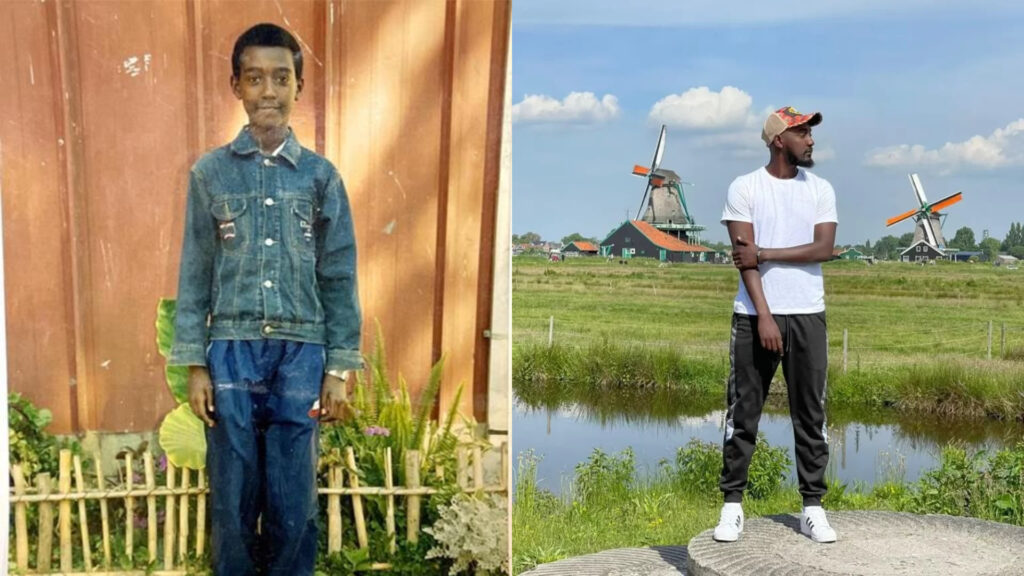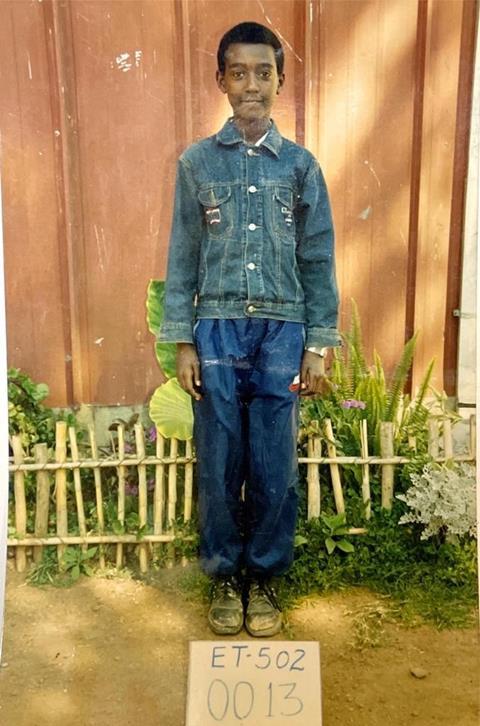
How Kumneger Mesafint Overcame Poverty
Kumneger Mesafint who is widely known in the Gospel industry as Kemi has shared a wonderful story about how he fought his way through poverty to become the first successful Ethiopian Gospel Rap Artist.
Diving into his background, KEMI was born in Addis Ababa, Ethiopia. He had a single mother as his caregiver and had never met his father. Because his mom only completed the eighth grade, it was quite difficult for the family.
However, beams of light were visible through the rusted iron sheets, signifying the optimism that Compassion’s enrollment in his Child Development Center represented.
Kemi has shared a long story about his journey and below is the full story:
When my mother fled an early marriage, she was just eight years old. She declined their offer to give her away. She traveled to the major metropolis by train on her own. She just ran without knowing where she was headed.
You could picture yourself alone in the city. She never received a proper education or had access to chances because of this. She survived.
That is how I ended up in one of the impoverished neighborhoods of Ethiopia’s capital, Addis Ababa. When I was just two years old, my dad left my mother. I didn’t have any siblings. It was really difficult to grow up without a father figure and in abject poverty.
The problem of urban poverty is multifaceted. It goes beyond simply not having any money.
We shared a single, modest home. It hardly qualifies as a house. We used to despise the rainy season because we couldn’t afford to fix the roof, and the walls were ripped away.
Sometimes my mother would reply no when I asked if we were going to eat today. We would go to bed hungry because we couldn’t afford to eat three times a day.
We didn’t have a private restroom. In actuality, hundreds of people in the neighborhood shared a single restroom with us.
The smell of poverty. We used to get sick a lot because we never had access to clean water. Kids would pass away from preventable diseases. Going to hospital was a luxury.
I was five years old when I first heard about Compassion and church workers from local churches came [and registered me].
We were given a lot of support through Compassion. Now I could go to school, have decent clothing. But it wasn’t just going to school.

At the Compassion project, I created countless memories. Let me tell you about how amazed I was the first time I saw a playground. We never had a playground in our neighborhood, therefore I had never had the opportunity to play there. “What is this spinning?” I thought. All of the children and I were ecstatic.
What mattered most were the small things that the Compassion project workers mentioned. “God loves you, we love you, and you are welcome here,” they used to say. I had never heard something so bizarre. No one in my community had the time to express their affection for you.
This support was what started to slowly change my perspective.
I referred to the church where I was raised as “a safe house” because it shielded me from the abuse, drugs, and violence that existed in my neighborhood. Although the church made significant investments in my education, training, and preaching, I also felt secure and free. I can still clearly recall the words that were prayed over us before we gave our lives to God. All of it was quite beneficial, especially for me because I had further support and counseling. Attending church inspired me to achieve more in the future and gave me hope.
I formerly kept a journal in which I recorded all of my emotions and experiences. I would simply write while crying. I met a producer after graduation who asked if I could rap and wanted me to try out in his studio. With all of the lyrics I had jotted down, we began recording a song. God created a song and an album out of my suffering. People can relate to my message of being honest with them about my experiences, my questions about God, and the answers he provided. My message is Jesus Christ, and I am merely a messenger through rap music. It all points to him.
That album, my first album, was actually the first gospel rap album in Ethiopia. Now my vision is to be a voice in my generation and God is using my voice through rap music and from hosting a mainstream radio show.
I never thought I’d be a radio host, but God gave me the opportunity to broadcast for one hour every day to millions in Addis Ababa. When I was a child I thought I would be left alone for dead. Now God is using me, Kemi, to speak out to millions. I’m also building a studio to provide opportunity for the younger generation to come in and do their thing with their talents to glorify God.
It’s God’s calling and God’s grace, and I’m so grateful. My message is Jesus. He is the true way. He is the answer.
wmmjr1
I am extremely inspired with your writing talents and also with the layout for your weblog. Is that this a paid subject matter or did you modify it your self? Either way keep up the excellent quality writing, it is uncommon to look a great weblog like this one today!